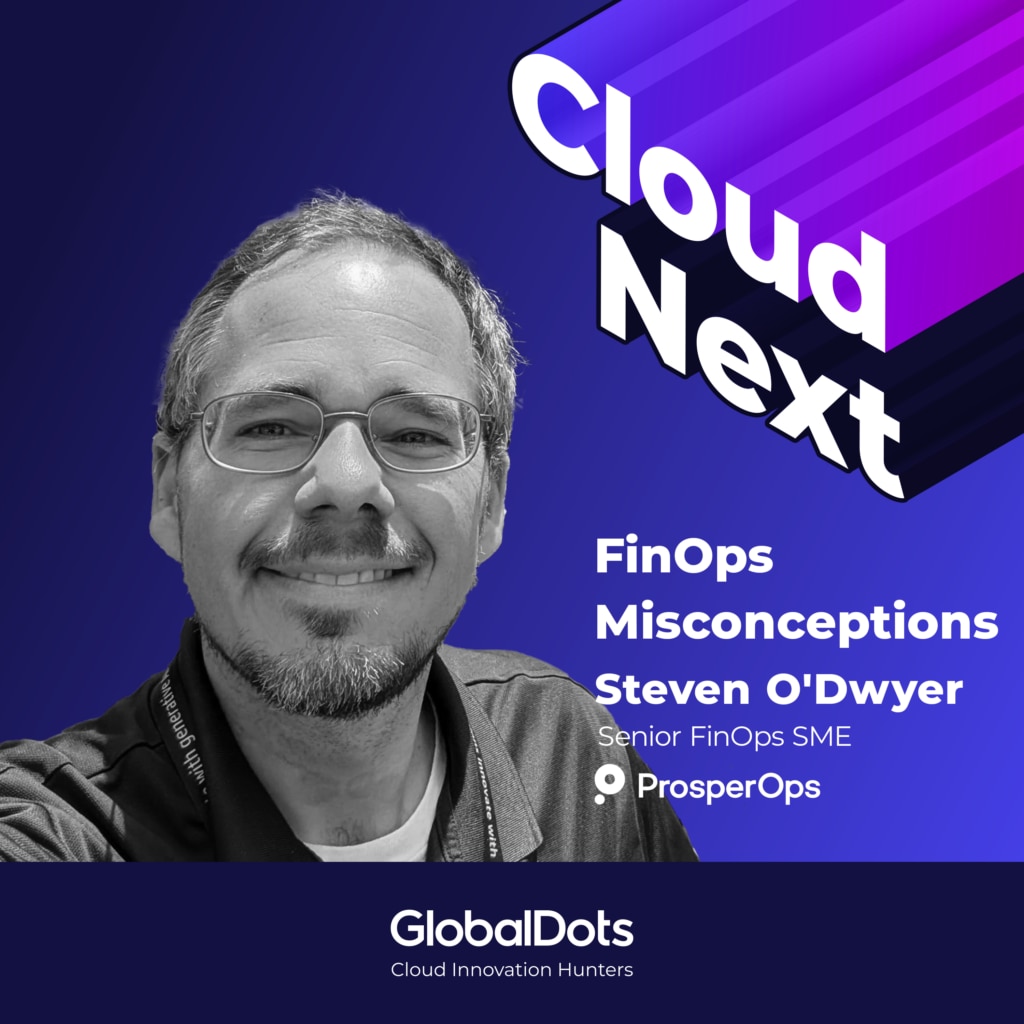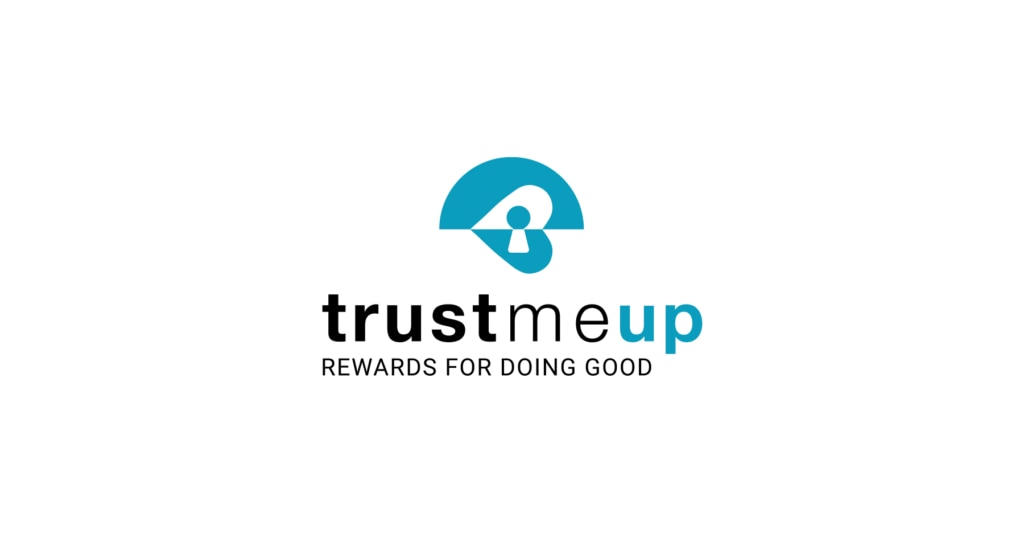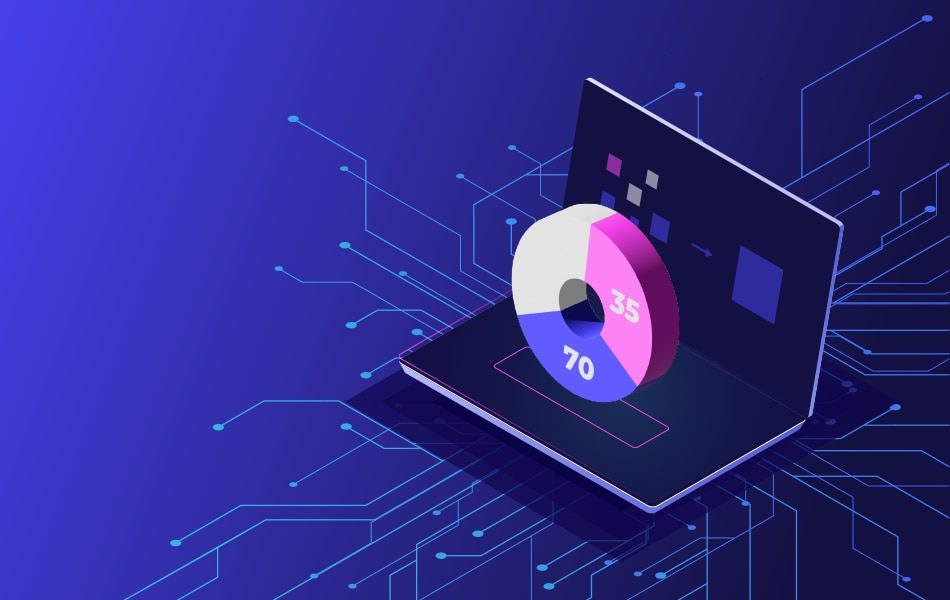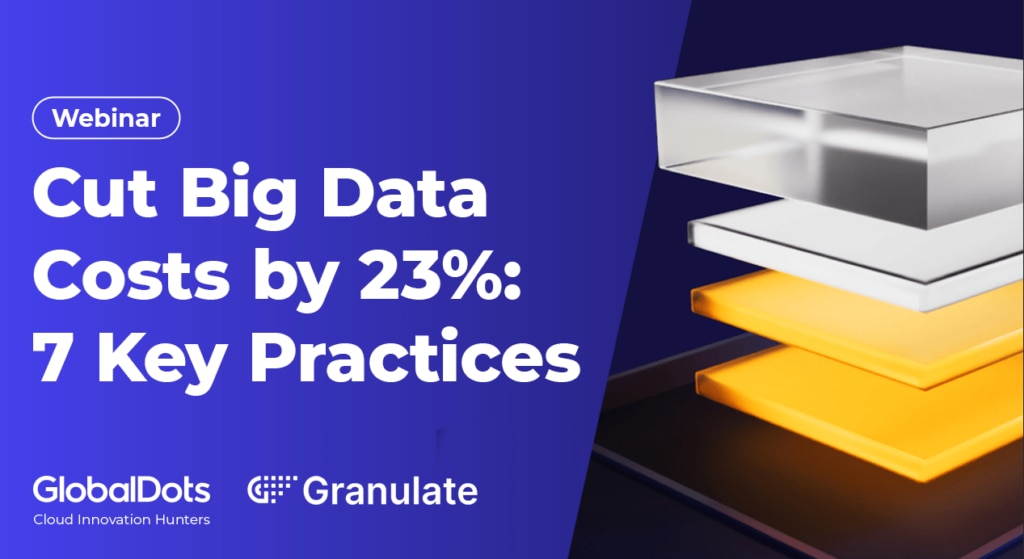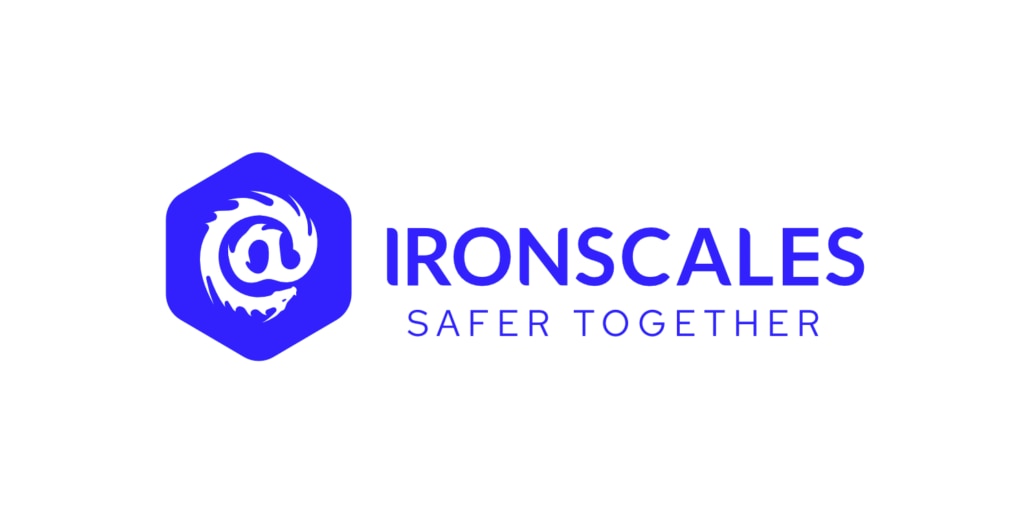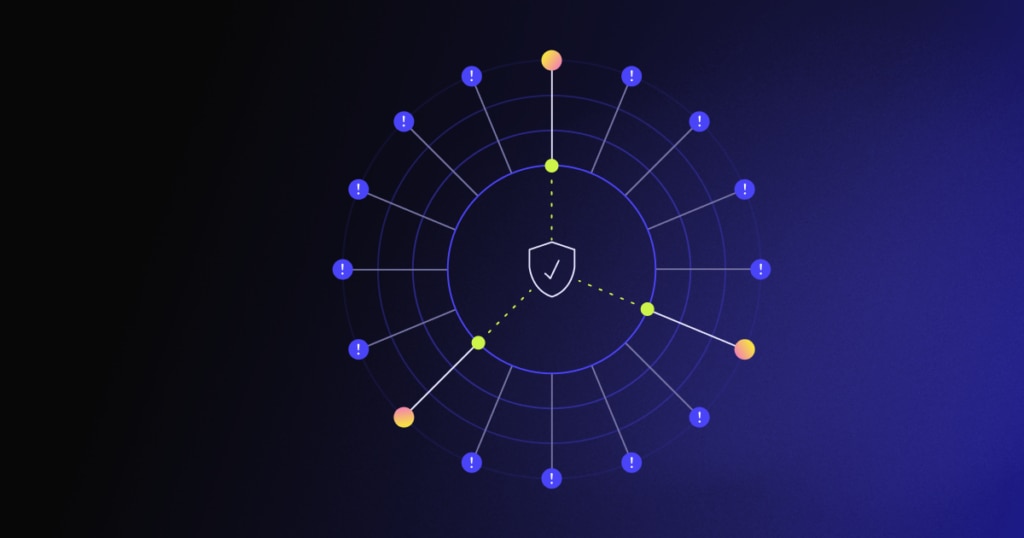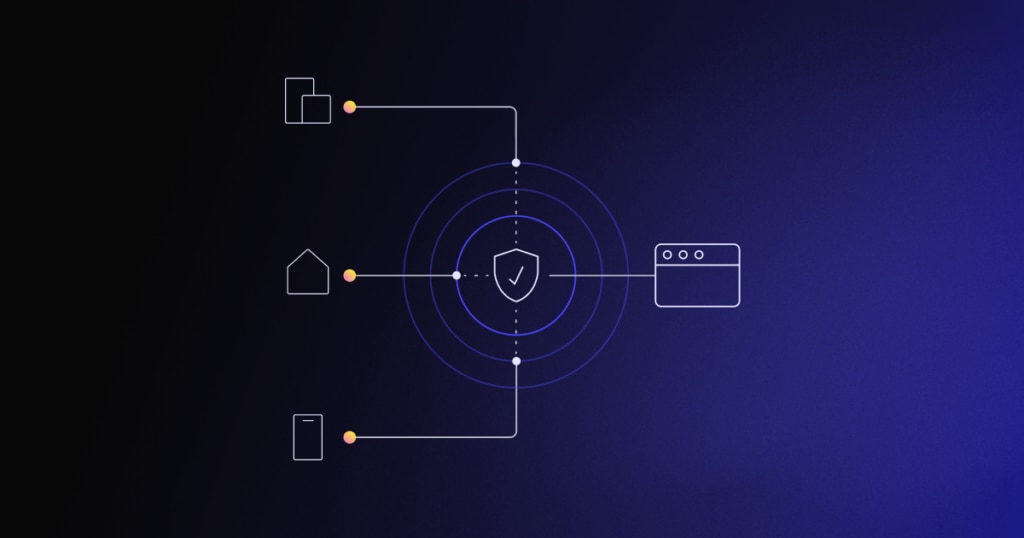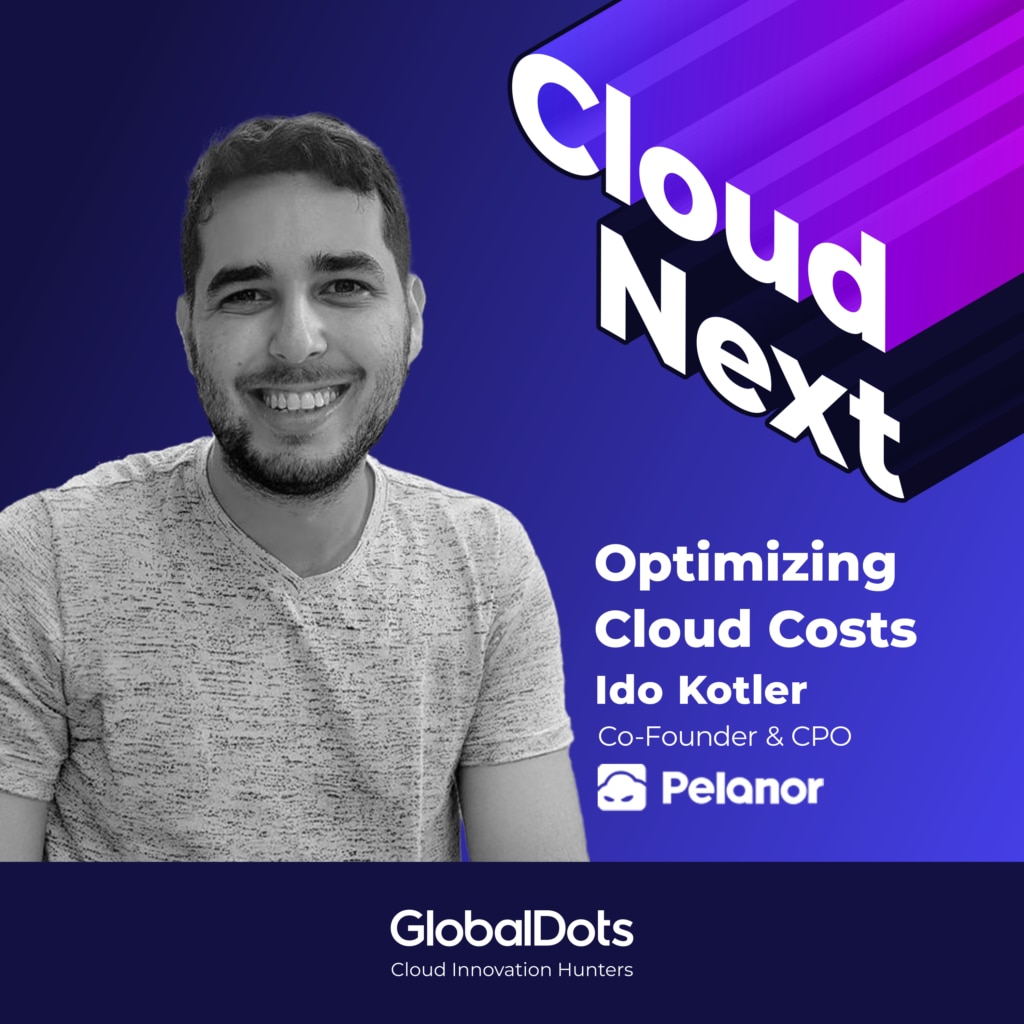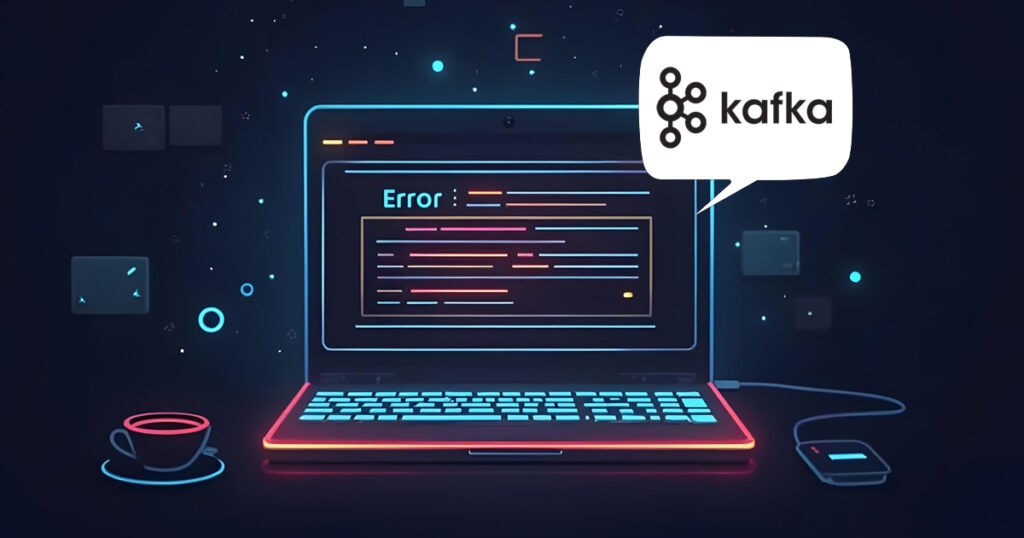This transcript was generated automatically by AI. If you find any mistakes, please email us.
Announcer
0:00:00
Hello everyone, you're listening to Cloud Next, your go-to source for cloud innovation and leaders insight, brought to you by GlobalDots.
Ganesh
0:00:15
FinOps was one of the biggest buzzwords in the tech industry and now it's becoming a standard practice. However, there's still not a clear structured path or formal education process for becoming a FinOps professional. Unlike traditional roles where you can go to college or take a structured career path to learn the ropes,
Ganesh
0:00:32
many FinOps professionals, including myself, found themselves in this field by accident, bringing diverse backgrounds and experiences to the table. I'm Ganesh Jyawasam, Solutions Architect at GlobalDots. And today we're joined by Liat Shoyle, Director of FinOps and Analytics at SentinelOne
Ganesh
0:00:48
and Nastia Moore, Staff FinOps Engineer at SentinelOne. Both of whom have unique journeys into the world of FinOps. They'll share their journeys, challenges, and insights, including how they train diverse teams and the tools that help them succeed in FinOps today.
Ganesh
0:01:03
Before we start, what should the people know about you? Tell the listener a little bit about yourselves.
Liat
0:01:08
So first, I want to mention it is important to note that everything we discuss here is based on our past experiences, as well as insights from colleagues, market studies, reading materials, forums, and of course our collaboration with Globadot and other third-party vendors. What we say isn't tailored specifically
Liat
0:01:26
for Sentinel-1. And with that, a little bit about me. So hi, I'm Liat. Thanks for having us here. I'm working at Sentinel-1 as a Director of PhenOps Analytics. My career has largely focused on project management, operation and business intelligence. I've had the opportunity to work with tech companies across the cybersecurity and communication sectors,
Liat
0:01:46
spanning from small startups to large corporates. I'm really passionate about continuous learning, both in my professional life and personal interest. So for instance, over the past year, I started learning to play piano.
Ganesh
0:01:59
I started learning the piano many years ago and then I had to stop because I moved out of the place where the piano was. But it was, I found it quite interesting as most things that can handle in the day to day professional world. But with the piano, I found like, my brain would crash. Like it would be like, it couldn't know the
Ganesh
0:02:18
next step. So yeah, it's a...
Liat
0:02:20
Wow, like because you need to be very fast, sharp, and you need to play two hands at once. Like, how can I do that?
Ganesh
0:02:28
But of course, we mustn't get too lost on talking about a piano, because Nastia, you're also with us. So tell us a little bit about yourself.
Nastya
0:02:36
So I'm going to thank you for having us here. I'm Nastia. I've been working at SentinelOne as a FinOps engineer for the past four years. I started my career as an information system analyst at a smaller company, where we build the FinOps platform from scratch. That project forced me to deep dive and learn much more about the cloud,
Nastya
0:02:53
eventually getting me into the Phenops domain. On a personal note, I'm passionate about climbing and mountaineering. I see a lot of similarities between climbing and Phenops. Both are about tackling challenges and finding smart solution,
Nastya
0:03:06
whether it's scaling a mountain or managing cloud costs.
Ganesh
0:03:09
I love it. I'm also a keen rock climber myself. So I'm looking forward to seeing the similarities there between the two. Great, thank you. You're you're both highly, you have lots of accolades, highly respected. So really happy to have you on the show for 100%. You both come from different tech backgrounds, but you landed in FinOps, which seems to be a theme of people who come into FinOps. And we
Ganesh
0:03:36
spoke that there isn't a structured path for this. So from both of your perspectives, what were some of the biggest challenges when you first started in FinOps?
Nastya
0:03:44
Yes, I can think about several challenges. For example, when I moved into FinOps, one of the big challenges was to get used to working with processes that are not always clearly defined. In FinOps, a lot of things are still evolving.
Nastya
0:03:56
So I had to learn how to adapt and create new workflows. There was not much information or formal education available for FinOps, so I had to figure out things on my own. Another challenge was working with both tech and finance teams. It meant I had to adapt my communication and collaboration style to ensure everyone was
Nastya
0:04:12
on the same page. At the same time, I had to quickly learn financial concepts while navigating through this new way of working. And from my aspect, I will address several challenges.
Liat
0:04:34
So the first one is how to manage a professional FinOps team without a deep background in cloud services and pricing. It forced me to do a lot of self-learning but also to greatly rely on my team. One key strategy I found valuable was to not hesitate in asking questions, whether within my team or to my partners and colleagues. Embracing this approach and overcoming the fear of asking allowed me to learn much more effectively. Another challenge was balancing the need to stick to the cloud budget with the demands of rapid growth, which can increase customer usage and cost.
Liat
0:04:59
So my best advice here is to maintain a backlog of cost efficiencies and saving projects that can be implemented very quickly within the quarter or to even be planned for the longterm.
Ganesh
0:05:09
Great, that makes sense. I would say that FinOps is one of these topics which is similar to security that people would say, or for the engineers and developers feel like it kind of gets in the way of their main goal. Like their main goal is to produce the product
Ganesh
0:05:26
or to do the next release. Their main goal is never the FinOps and security. It's kind of an extra piece. I know we talked about, you can help this process by creating KPIs and so people understand, you know, why you're doing something.
Ganesh
0:05:42
But can you elaborate on your KPIs and how you track and manage your cloud costs and how you do this to foster a culture of accountability and make sure you're having business growth at the same time?
Liat
0:05:54
So I can talk from my experience that as far as the common mistake is jumping straight to KPIs just to say that we have KPIs and we're measuring something. But without first defining what success looks like and how these KPIs will even support the business goals. So as a ground zero, I would say setting clear objectives is essential. It also is important for accountability. Next, you will need to define and measure the customer usage, the customer usage
Liat
0:06:22
that impacts and drives the cost. So keep in mind to do that in partnership with product and engineering and management, of course, to have everybody aligned. But the interesting metrics, in my opinion, are the efficiency KPIs, because they compare between the cost and the customer usage.
Liat
0:06:40
And they will help you to see that cloud cost increases, which happen normally, is not necessarily a bad thing. And in a mature company, you would expect these metrics to either remain stable or to even improve over time. After that, I would recommend to drill down and to enable drilling down into the data.
Liat
0:06:58
And that's a very crucial thing. For example, we would want to drill down per region to assess region efficiency and take informed decisions on new region expansion or closure, or to even drill down per product to take data-driven decisions on pricing
Liat
0:07:13
and how we price the product to our customers. From how I see it, regarding the accountability question, the accountability relies heavily on visibility. We as a PhenOps team must provide visibility into the data and trends and connect this information to the why. Why these actions are important and necessary, what impact they will have and how they align
Liat
0:07:35
with the company objectives that we discussed earlier.
Ganesh
0:07:38
Totally agree and I've seen too often KPIs for KPIs sake, which is definitely not a good way to go. And what's interesting is what you do in one company is not, you can't copy paste that into another organization. So there's finding that framework that works is actually per business or kind of per business model. And when you talk about that business growth is also quite interesting, because they, you know, I've seen these investigations where let's say you have a million customers on the platform. And it turns out
Ganesh
0:08:11
that 900,000 of those customers are on the free plan. And you're building features for all the people that are on the free plan, whereas actually, you should be focusing at the 100,000 paid users on there. So this kind of aligning the customer to the KPI in the business growth is makes total sense. And yeah, this is I couldn't agree more on that one.
Liat
0:08:31
Yeah. And and you talked about like the the business model. And also, I would add the the business maturity, like on which stage is the business at right now and how mature it is, how mature the processes is within it and how management is connected to even or even committed for the cloud costs within the business.
Ganesh
0:08:53
Yeah, that makes total sense. Yeah, I can think of lots of startup companies where they only have five customers. So then if you if you bill how much the platform is costing per customer, then you would never add another customer because the cost is going to be so crazy. But once you have meaningful metrics where you can say, every 10,000 customers, it's going to cost another one x of our cloud bill or something like that, you know, then you have really meaningful KPIs that the business will listen to as well. And I think I see a time now
Ganesh
0:09:24
where FinOps is becoming so hot that it's getting to the director level or on the board level where the information that FinOps engineers are providing is actually completely required to steer the business in the correct way. I don't know if you have any thoughts on that.
Liat
0:09:45
So thoughts on that, I saw several cases where our information contributes to the board decisions and even not in the board level, I can say that even in the product management level, I can see cases where let's say a product can or product decides on a certain feature that they estimated that will cost A and then eventually it costs something else and then we as a FinOps team can have some impact on what do we do with this feature even after it's let's say released to the customers like having the cost impact being a driver for a post let's say feature releases
Liat
0:10:25
And of course, the idea will be to have these things much earlier in the process and to impact before even development, which is another challenge.
Ganesh
0:10:36
So you've, at this point, you've worked your way through the FinOps vertical and now you're on the other side of the fence and you're hiring and training different people with different educational and professional backgrounds for your FinOps departments. Do you have any upcoming tips or tricks for training employees or something for the industry?
Nastya
0:10:56
Sure, so I think like if we talk about the FinOps skillset, I think that the FinOps engineer should be a self-starter, a problem solver, quick learner. He must have good communication skills and teamwork. It's essential because we interact with so many departments and stakeholders. I would also like to say the ability to simplify complex information
Nastya
0:11:16
and to clear and actionable insights is a key here. Also, last but not least, work with local partners, for example, GlobalDots. It can really help a FinOps, especially a new FinOps higher up to get up to speed.
Liat
0:11:47
When I look at the mature FinOps team, I see various skill sets needed. And I will add on top of what Nastia said, but the obvious ones are around cloud cost analytics, cloud pricing, technical cloud knowledge. This I think everybody will agree with me, but it's also important to have data engineering and BI skill set because all of these together blended into a team enables to connect the cloud cost to the cost driver unit, enabling pricing decisions, cost modeling, efficiency tracking, cost savings, forecasting, and much more on top of that.
Ganesh
0:12:09
Yeah, it's definitely not an easy topic because if you, you know, being extremely good at visualizing data used to be a job just on its own and understanding cloud costs probably used to just be a job or understanding IT budget costs used to be a job on its own. But then trying to knit all of those things together is becomes sort of unbelievably complex really. And we talked about working with those various teams. Can you explain how the FinOps collaborate with different teams.
Liat
0:12:48
Yeah, so I think regular syncs with the relevant teams can improve partnership and collaboration. For example, FinOps with SRE or FinOps with DevOps, these meetings can be focused on current execution, future plans, what are the dependencies between the teams and understand that we're talking on the same things. We can have conversations there on cost goals and cost reduction projects. You can also have periodical reviews with engineering and management to review status, forecasting, KPIs, efficiency metrics, and discuss cost reduction and new feature plans, for example.
Nastya
0:13:23
It's also good to have some dedicated channels with a representative from across the org so you can help with the day-to-day jobs and alignments. And sometimes there are cases that you would like to meet one-on-one with your stakeholders, like in cases the topic is complicated or has an organization sensitivity.
Nastya
0:13:41
This can really help with accountability and engagement.
Ganesh
0:13:44
I feel like it's quite a political role in some way as well because you need to be loved by all departments in order for them to share the magic of how things are built. Or, you know, I can imagine it being quite easy to hide costs or to try and push costs into another department or somehow try and obfuscate the way the cost comes together. So I guess you need to be liked and loved as well across the business. Any tips and tricks for being liked and loved?
Liat
0:14:14
I think I would say appreciated or let's say recognized because in jobs like that, we need to work with a lot of departments and we need to understand how a certain person or how a certain department likes to work and how they like to be communicated. So how to approach each team will be a little bit different maybe or maybe tailored by the style of the team or by the style of the manager. So I would go on like tailoring their personality.
Liat
0:14:59
I will add to this that you also need to show the teams like if they did some work, let's say if it's cost saving, we need to show them the recognition they deserve.
Ganesh
0:15:00
Absolutely. And you know, that's the feedback part of the process is obviously the bit where people can feel like they can celebrate the work they've done. You know, when you when you we got from A to B, you know, we can pop the champagne cork and everyone's looking a lot happier. I've seen various incarnations of this kind of process and I particularly like one and I'm not saying I advocate it, but I I like it personally is I would call the wall of fame and the wall of shame
Ganesh
0:15:30
Put the engineering teams against each other. That's not necessarily gonna work in every organization. But you mentioned, you had a talk recently talking about automation to manage your cloud efficiencies, but can you share some of the tools and the strategies that you would recommend?
Nastya
0:15:51
Sure, so first thing I would like to emphasize again, the importance of partnering with the right experts from the start. A good partner can really guide you and help you implement all the best solution in the market.
Nastya
0:16:04
When I think about automation tools, I can think about several approaches that I believe can make a really big difference. Any RI automation tool, it helps with optimizing the RI management by analyzing a pattern and adjusting automatically.
Nastya
0:16:18
I would recommend covering the stable workloads with saving plans to provide flexibility and work with a third party tool on the remaining portion for the RI
Nastya
0:16:26
coverage.
Nastya
0:16:27
Besides the cost saving, it will also free up the Synapse team to focus on most tragic tasks rather than the manual RI management, which can take a lot of our time. Another tool that I think that can really work is any Kubernetes autoscaling tool.
Nastya
0:16:40
Because Kubernetes can be really complex, we all know it. But with the right tool, we can gain visibility into the problematic areas and automate a fix, making the company operate much more efficiently. Another one, I think maybe this is the most important one, is any FinOps automation tool that you can turn recommendation into doable actions with minimal effort.
Nastya
0:17:02
This tool has defined policy, governance, reduced cost and increased accountability. I really recommend following all of them or at least one of the tools and put them into the organization.
Ganesh
0:17:12
I 100% agree with everything you just said. The idea that you want to spend a lot of your own manpower looking after those little bits that are moving up and down when you can use a piece of automated software. Because the only other option is that you're going to build all the software yourself. And, you know, I always think it's if you're not in the business of building software, and you're not and specifically FinOps software, then don't get involved with that. I meet lots of people who say, I don't know why I would use that automation tool, I can build it myself. It's like, okay, go and build it yourself.
Ganesh
0:17:48
You're gonna waste so much time on that. And then when you-
Liat
0:17:53
Build it and also maintain it.
Ganesh
0:17:55
And maintain it. And then you're gonna leave the company and then nobody's gonna know how that's built and then they're all going to be trying. But you know, it's a political thing. And I find this with lots of engineers because they, maybe some of these automation tools are not like completely mind-blowingly complicated.
Ganesh
0:18:17
So they think to themselves, well, we could just build that. And it's this, I feel like that we could just build that attitude, we could just build that, we could just build that. You end up like so distracted that it's not good for businesses but again trying to convince people of that is somehow political and I would say emotional in some cases. Then the automated tools that you mentioned, I also see that there's that's we're coming to wave two and wave three of FinOps tools now. So the first ones were all about
Ganesh
0:18:51
visualization and tracking. The second ones were all about recommendations, but then didn't actually take any action. And now the third wave of ones are like, okay, we will actually fix the problem and go and do it for you. So that's, you know, any, if you're in a enterprise or large organization, you should be looking at that number three, you should be looking at that
Ganesh
0:19:11
what how can we automate that? Interestingly, companies are scared for that because they don't like the idea that things are just happening inside their account. Do you have any thoughts or feelings on that?
Nastya
0:19:23
Yeah, so I do agree with the difficulty to spin any third-party tool to do actual remediation in your environment. But even if you spin those tool only for, like in discover mode and only like with read-only permission it can still give you much more value than looking at all
Nastya
0:19:40
these things by yourself and maintaining scripts and building this entire automation workflow. So even with a pushback on the remediation, use it for discovery.
Liat
0:20:22
Exactly. And I would say that even, of course, align with the various teams about strategy and policies about what we can do, what we can't do. Don't decide by yourself, do a collaborative thinking on that. And I would say that eventually the long term goal will be to get insights to the organization faster. And like when the cloud costs increase or there is any sudden change in cloud costs, we would want to, one, identify it fast and second, we want to do something with it fast so that the discovery can help really with identification and short the cycle time to get the insights into the organization really quickly. Great advice
Ganesh
0:20:37
and you definitely don't want to be waiting until the end of the month to get the AWS bill to find out what's been happening inside your account. You're gonna be bankrupting the company if you operate in that way. I want to jump back to the teams. So we mentioned working with all these different teams and could be product teams or engineering teams.
Ganesh
0:20:58
But how would you recommend managing cost allocation within these teams?
Liat
0:21:02
Yeah, so there are several different ways to manage cost allocation. I think that it's highly dependent on the company maturity. We talked about it at the beginning. The most common method is to do cost allocations with tagging and labeling. I think I'm not surprising anybody by saying that. In cases which the company isn't mature enough, meaning doesn't have a good tagging policy,
Liat
0:21:22
you will need to think creatively to come up with the best appropriate strategy. For example, logics that you can base on certain rules. So for example, linked accounts, project name, namespaces, cluster names, region, services. So like find whatever you can to lean on. Nothing will be 100% by the way, not even with tagging and labeling. You would want to start with something and you want to start with something that is like the 80-20 or the 70-30 and then improve as you go.
Liat
0:21:54
Don't try to optimize it from the beginning.
Ganesh
0:21:56
Yeah, and I don't think you'll get any surprises there for mentioning tagging. I actually think there's enormous sums of money to be made by the first person that builds just an auto-tagger that actually works and has some AI in there that works out what your system's doing without telling you. I don't propose I know how to build that, but that would be a great tool if it was out there.
Liat
0:22:32
It would have been a millionaire.
Ganesh
0:22:33
Yeah, if anyone's listening, you want to contact me. I can tell you what needs to be built. I just can't build it. But this is totally true. And you know, I find as well a lot of organizations if they don't have that in place, it seems like such a huge mountain to climb that they don't even bother. And you know, you're never going to get to where you need to be if you don't start doing some of these tagging practices. I'm wondering if you have any, if you would give any advice to people who are nowhere. So what would you say to the person with no tagging at the moment?
Liat
0:23:05
I think like the Pareto rule, or let's say Pareto rule applies here, like try to find the most big chunk of cost allocation that will be defined by the least effort. Like, try to find the big fishes first. Let's say products that will be very easy to allocate into very simple rules with a simple sum rule, et cetera. And then I would go and catch the smaller ones and of course do a lot of cycles of remediation. The goal is
Liat
0:23:41
not to get to the mountain peak at no time. The goal will be to get somewhere and then improve over time. And because the climbing can be... I will add just one note on this. I think also keep it simple. Keep the tagging policy simple. Don't try to capture everything at once because you will not get there. Keep it with like three tags that are the top priority for the company and continue working there from
Ganesh
0:24:09
there. Definitely sound advice and talking about that climbing the mountain and we got back to climbing. You're right. Yeah, that's what I thought. We did, it happened. You see, you see the connection? You see, it came back. And we talked about, so we talked about that the challenge of climbing the mountain, but coming to some of those other challenges of working with pricing and finance teams, how would you propose to address those problems?
Liat
0:24:35
Yeah, so I have to say that in all the companies I worked with, I had a really positive experience in working with finance and pricing teams. But I will talk specifically about the challenges. team, the maturity of the cost allocation model, which we discussed previously, can make it really challenging to define a good database for trade-offs and decisions to be made. So for example, if you don't know
Liat
0:24:58
how to accurately split cloud costs between two products, it will be really hard to determine the product cost pricing. So what I would recommend doing in these cases is not to be in a hurry for the final solution, but rather work in stages.
Liat
0:25:15
Start with a quick and dirty split between these two products and that's good enough for now. And then as we talked, improve and accurate over time.
Nastya
0:25:43
I think from the finance, the challenges are the difference between the way that the FinOps track cost and they track the cost, which is the difference between downgraded and down mortalized. It can cause gaps in the cost allocation because of the way that each one of the team track this cost. Also in public companies, accuracy is very important. It means you must be able to justify every piece of data provided at any logic that impacts the reporting. To overcome, by the way, all the challenges with the finance, I really think that building strong relationship between those teams can greatly help with the bridge those gaps and ensure more accurate and aligned reporting.
Ganesh
0:26:02
Again, it's the, it seems to be that political aspect keeps cropping up where it's building relationships between the teams and somehow being the helpful glue that they will open up to across the teams.
Liat
0:26:17
Yeah, the word that is popping up for me is trust, like we need to build trust and that takes time because at the beginning it's like we're starting from ground zero. But then you improve and improve and the relationship and the trust level and then everyone can see the impact. Exactly. As a phenops team and as a collaboration with all the teams.
Ganesh
0:26:36
And I think that's why the maybe the wall of shame doesn't work because it doesn't bring much trust but the wall of fame does bring brings more trust. Exactly. We're coming to the close of the episode, but we always like to ask this question to everybody who comes on the show and ask if you could go back in time and give yourself one piece of professional advice, what would it be?
Liat
0:27:00
Wow, I like this question and I hate this question, but I will try. So I would probably say two things. So one, keep in mind that cost saving projects can also keep costs flat. And I will say it again, because I wish somebody told this to me at the beginning. So again, keep in mind that cost saving projects can also keep costs flat. And on that aspect, I think I wish I would learn earlier because especially in hyper growth companies, you always plan for a certain cost saving for a certain project
Liat
0:27:36
that you now executed, but you have growth. And when you have growth, the cloud is growing and then it's just as it is. And then you're disappointed. And then people thought that what they did isn't really done or something got wrong or their estimates weren't correct. And that causes like a chaos. So that's something really important to remember and always plan a certain percentage of growth and have a book, a backlog of a lot of cost reduction to stay flat or to reduce.
Liat
0:28:08
And the second one, cost reduction must be planned in alignment with the company planning cycle. It means that I can't just go to a team and say, I found some waste, now clean it up. It won't happen because the company is planning in a certain way and we need to come in some cases up front and ask them to do their things in their planning cycle. So we talked about it earlier where like the software teams just want to get out new features
Liat
0:28:37
and they don't necessarily want to be interrupted in the middle and do waste cleanup or anything else that we tell them. So we need to also respect that and to try to do these things in the planning cycles.
Liat
0:29:03
And for me, I think I will give myself one advice and it's to understand that implementing new ideas can be challenging, especially at the beginnings. I mean, when we start a new position or a new role, we came up with so many ideas and so much motivation, but usually it's not that easy to implement them. So it's important to recognize that not every idea will be doable right away. And that's okay. With patience, persistence, and flexibility, you will make progress and you'll find a way to turn your ideas into successful outcomes. Embrace the journey and learn from each step.
Ganesh
0:29:22
Wonderful, totally great pieces of advice and a great way to close out the episode. Genuinely great chatting to both of you. Very smart, very insightful ladies. Really appreciate you coming on the show and thank you so much.
Ganesh
0:29:35
Thank you, thank you.
Liat
0:29:35
It was a pleasure. Yeah, and I hope we brought value and... Me too.
Ganesh
0:29:42
No question about it. This episode was produced and edited by Daniel Ohana and Tom O'Morvinson, sound editing and mix by Bren Russell. I'm Ganesh The Awesome, and if you're ready to deep dive and start transforming the way you approach cloud practices and cybersecurity strategies,
Ganesh
0:29:57
then the team and myself at GlobalDots are at your disposal. We are cloud innovation hunters and we search the globe looking for the future tech solutions so we can bring them to you. We've been doing it for over 20 years, it's what we do, and if I don't say so myself, we do pretty well. So have a word with the experts, don't be shy, and myself, we do pretty well. So have a word with the experts, don't be shy, and remember that conversations are always for free.

